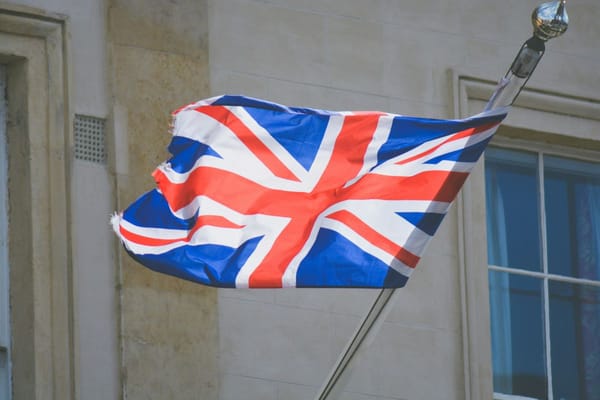His Highness Sheikh Mohammed bin Rashid Al Maktoum, Vice President, Prime Minister, and Ruler of Dubai, chaired the UAE Cabinet meeting at Qasr Al Watan, Abu Dhabi.
He highlighted the UAE's global rankings in labor market indicators and noted the benefits of schemes like the Involuntary Loss of Employment and Workers' Protection Programme. The Cabinet approved a new structure for the Ministry of Human Resources and Emiratisation to enhance labor market stability. His Highness reviewed the achievements of the industrial sector, emphasizing its importance to the national economy. The Cabinet also approved initiatives like a national policy on biofuels and extended passport validity for Emiratis. Additionally, His Highness discussed the Digital Wellbeing Council's accomplishments and stressed the importance of family in safeguarding children.
Accomplishments of the UAE industrial sector in 2023
In 2023, the UAE industrial sector achieved significant milestones as reviewed by the Cabinet. The country excelled in various competitive indicators, ranking first regionally and 37th globally in the Frontier Technology Readiness Index. Additionally, it ranked first in the Arab region and 29th globally in the Competitive Industrial Performance Index, and first regionally and 11th globally in the Quality Infrastructure for Sustainable Development Index report.
The industrial sector's contribution to the GDP reached AED 197 billion, marking a growth rate of 49 percent compared to 2020. Industrial exports amounted to around AED 187 billion in 2023, showing a growth rate of 61 percent compared to 2020.
Key sectors like petrochemicals and metal products contributed significantly, comprising 38 percent of the industrial value added. Sectors including metals, construction materials, food, and beverage accounted for over 47 percent of total industrial exports.
The ICV Programme experienced remarkable growth, with national spending reaching AED 67 billion and cumulative spending reaching AED 237 billion. This marked a significant increase compared to the program's launch in 2018.
The 'Make it in the UAE' initiative secured approximately AED 62 billion from total purchase offers, enabling the local manufacturing of 1,400 products worth AED 120 billion over the next decade.
The industrial sector received financial solutions worth AED 5.3 billion and credit solutions worth AED 1.4 billion in 2023. Additionally, customs exemptions valued at about AED 3 billion were granted. Import substitution projects reached approximately AED 9 billion.
To further support the industrial sector, the Cabinet approved the introduction of new consumption tiers for electricity services provided by the Federal Electricity and Water Authority (FEWA). These initiatives aim to bolster industrial growth and enhance the sector's contribution to the UAE's economy.
National efforts to support labour market
The UAE Cabinet was briefed on the collaborative efforts of the Ministry of Human Resources & Emiratisation, alongside various federal, local, and private entities, aimed at supporting stability in the labor market and addressing disputes across the country.
In 2023, initiatives and mechanisms implemented by the UAE government led to a significant 75 percent reduction in labor disputes compared to 2022. Moreover, over 98 percent of labor disputes were amicably settled up to March 2024. The "Collective Labor Dispute Committee" successfully resolved disputes totaling over AED 300 million.
Furthermore, the Cabinet reviewed the results of the implementation of the Involuntary Loss of Employment scheme from 2023, up to March 2024. By the end of 2023, over 7.2 million employees from both private and federal government sectors subscribed to the scheme. These efforts aim to ensure stability and fairness in the labor market, benefiting both employees and employers across the UAE.
Health insurance system for private sector employees
During the meeting, the Cabinet approved the creation of a health insurance system for registered employees in the private sector and domestic workers without existing health coverage. Under this new system, employers in private companies and those of domestic workers in the UAE must provide health insurance for their registered workers when issuing or renewing residency permits.
This decision will become mandatory starting January 1, 2025. The Ministry of Human Resources and Emiratisation will oversee necessary awareness campaigns and programs to inform the public about this requirement.
UAE economic sector achievements in 2023
In 2023, the UAE's economy experienced significant growth, with the non-oil GDP increasing by 5.9 percent in the first nine months compared to the same period in 2022. Additionally, the UAE entered into 10 comprehensive economic partnership agreements with friendly nations worldwide.
The Cabinet reviewed these economic achievements, which were the result of collaborative efforts by the Economic Integration Committee, national Economic Development departments, and relevant economic departments within local governments. These accomplishments included expediting the issuance and implementation of economic legislation and launching various projects to strengthen the nation's economy and foster an investment-friendly environment.
Notable initiatives included the development of the National Economic Register system, issuance of seven economy-related legislations, launch of the Intellectual Property System, establishment of a system for receiving consumer complaints, creation of a register for "misleading trade names," and efforts to combat money laundering and terrorism financing. Additionally, a guide was issued to local authorities regarding fines and penalties related to the commercial registry, among other initiatives aimed at enhancing commercial activities and business growth in the UAE.
UAE National Policy on Biofuels
The UAE Cabinet has given the green light to the National Policy on Biofuels, which aims to regulate and oversee the distribution, production, and utilization of biofuels. This policy sets standards for biofuel production, manages its trading activities, and establishes criteria for its production within the country.
Moreover, the policy aims to create standardized specifications for biofuels, manage their production and trading, and contribute to environmental protection and public health. By fostering sustainable development and mitigating the effects of climate change, the UAE aims to make significant strides in promoting the use of biofuels as an alternative energy source.
National Digital Accessibility Policy
The Cabinet has endorsed the National Digital Accessibility Policy to bolster digital transformation and service efficiency across the nation. This policy is designed to ensure digital inclusivity for all, particularly focusing on people with disabilities and the elderly.
Its primary goal is to provide easy access to digital products for these groups, empowering them with efficient access to digital services. By prioritizing their needs and leveraging modern technologies like AI and digital transactions, the policy aims to enhance inclusivity and the efficiency of digital services, supporting government efforts in transitioning to integrated digital platforms.
Digital Wellbeing
The UAE Cabinet assessed the Digital Wellbeing Council's activities and achievements, chaired by H.H. Lt. General Sheikh Saif bin Zayed Al Nahyan, Deputy Prime Minister and Minister of Interior. The council, in collaboration with relevant authorities, took action against over 2,700 websites violating the nation's regulations, involving online scams, phishing, and unauthorized product promotion. Additionally, more than 160,000 inappropriate content and accounts were removed from social media platforms.
These efforts significantly boosted internet security confidence to 79.2% in 2022, and there was a decrease in online bullying incidents by 2.4 points compared to 2020.
Establishing the Coordinating Council for Labour Market
The Cabinet sanctioned the establishment of the ‘Coordinating Council for Labour Market’ in the UAE, to be overseen by the Minister of Human Resources and Emiratisation. This council will be tasked with reviewing legislation, strategies, and initiatives concerning private sector companies and their workforce. Its aim is to align federal and local regulations to ensure nationwide coordination and integration.
Additionally, the Cabinet approved the restructuring of the Emirates Tourism Council for a three-year period, chaired by Abdullah bin Touq Al Marri, Minister of Economy. Furthermore, Dr. Ahmad Belhoul Al Falasi was appointed as the Chairman of the Board of Directors of the UAE Space Agency. The Cabinet also endorsed a decision to restructure the Board of Directors of the National Institute for Health Specialties, led by Dr. Ahmad Belhoul Al Falasi, Minister of Education.
Supporting the fire safety system “Hassantuk for Homes”
During the meeting, the progress of the fire safety system "Hassantuk for Homes" was discussed. This system, which includes the Hasanatuk intelligent alarm system, has been installed in 14,470 households that receive social assistance, with a total expenditure of AED 105.9 million.
The Cabinet approved the federal government covering the subscription costs for both new and existing households. This initiative aims to link the fire detection systems in homes of individuals receiving social assistance from the Ministry of Community Development with civil defense systems as part of the "Hassantuk" program.
This coverage will be implemented for a duration of two years, pending the completion of necessary studies with relevant authorities and project implementing companies.
Governance Guide for Boards of Directors in Federal Government
The meeting also gave its approval to update the Governance Guide for Boards of Directors in the Federal Government to align with global best practices. This guide outlines provisions, standards, controls, and procedures to enhance the role of boards of directors in the federal government, clarifying their responsibilities and those of their members and subcommittees.
This guide will serve as a comprehensive governance framework to regulate the relationship between boards of directors and relevant federal entities. It aims to improve the quality and efficiency of decision-making processes, ultimately supporting the government sector in better serving the people.
Additionally, the Cabinet approved decisions concerning the executive regulations of Federal Decree-Law No. (43) of 2021 on the Commodities Subject to Non-Proliferation, and Federal Decree-Law No. (22) of 2023 on badges and medals in the Federal Authority for Identity, Citizenship, Customs, and Port Security.
Moreover, the Cabinet endorsed several decisions related to the services provided by the Federal Authority for Identity, Citizenship, Customs, and Port Security, as well as fee adjustments in the federal courts.
In terms of government affairs, the Cabinet addressed requests from the Federal National Council regarding various government policies. These policies include strengthening the knowledge-based economy, managing and sustaining endowments and Zakat funds, enhancing their societal role, improving government employee efficiency, promoting citizen participation in the education sector, and formulating policies for technical education, vocational training, and other government-related matters.
Approving 6 international agreements
The UAE Cabinet greenlit two comprehensive economic partnership agreements with the governments of the Republic of Serbia and the Republic of Georgia. Additionally, an agreement with the Czech Republic was approved to eliminate double taxation on income taxes and prevent tax evasion and avoidance. Furthermore, three agreements with the Socialist Republic of Vietnam concerning the extradition of criminals and the transfer of convicted persons were also endorsed.
Moreover, the Cabinet sanctioned an amendment to the International Bank for Reconstruction and Development (IBRD) agreement aimed at removing loans and financing restrictions.
During the meeting, the Cabinet decided to establish an embassy in Guatemala City, Guatemala, and a consulate general in Edinburgh, Scotland.
Furthermore, the Cabinet gave its approval for hosting various international conferences and events in the UAE, including the International Conference of Military Medicine 2026, the annual meetings of the Arabian Peninsula Regional Program, the conference on the Implementation of the Early Cargo Targeting System, the Conference of Arab Ministers of Higher Education and Scientific Research, and the Annual Conference on Undergraduate Research on Applied Computing.
News Source: Emirates News Agency









